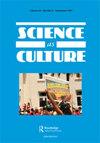临时设计。Frontex数据基础设施与移民和边境管制的欧洲化
IF 2.5
3区 哲学
Q1 CULTURAL STUDIES
引用次数: 1
摘要
摘要:Frontex联合行动的数据基础设施通常只是临时的,因此需要方便地建立和拆除,能够适应不断变化的安全行为体,并适应新的情况。他们需要克服缺陷、差距和矛盾。尽管如此,他们还是伪造了用于重新识别移民、警方调查、态势图或风险分析的数据,并导致Frontex的安全措施得到加强。这是通过设计上临时的数据基础设施来实现的。人员和表格被用作连接国家警察和海岸警卫队各固定基地的临时门户,非正式通信渠道和“其他”进入领域围绕部分标准化的分类系统激增,持续的协调和修复驯服并验证了数据的激增。据此,联合边境行动的数据基础设施暗示了一种既不是超国家也不是政府间的欧洲化模式。它的目标不是集中管理或完全集成的信息系统,而是通过松散的信息系统和国家和欧盟机构的机构生态相互连接来实现部分协调。这导致了问责问题,需要进行分析,将知识生产的世俗社会技术条件考虑在内。本文章由计算机程序翻译,如有差异,请以英文原文为准。
Provisional by design. Frontex data infrastructures and the Europeanization of migration and border control
ABSTRACT Data infrastructures for the Frontex joint operations are often only temporary and thus in need of being built up and removed easily, adjustable to changing constellations of security actors, and adaptable to new situations. They need to work through flaws, gaps, and inconsistencies. Still, they fabricate data used for the re-identification of migrants, police investigations, situational pictures, or risk analysis and lead to the intensification of security practices of Frontex. This is accomplished by data infrastructures that are provisional by design. People and forms are used as provisional gateway to interconnect various installed bases of national police and coast guard authorities, informal communication channels and ‘other’ entry fields proliferate around partially standardized classification systems, and ongoing coordination and repair tame and validate the proliferation of data. With this, the data infrastructure of joint border operations hints to a mode of Europeanization that is neither supranational nor intergovernmental. Instead of centralized administrations or fully integrated information systems, it aims for partial harmonization through interconnecting loosely information systems and institutional ecologies of national and EU agencies alike. This causes issues of accountability and requires an analysis that takes the mundane socio-technical conditions of knowledge production into account.
求助全文
通过发布文献求助,成功后即可免费获取论文全文。
去求助
来源期刊

Science As Culture
Multiple-
CiteScore
5.20
自引率
3.80%
发文量
28
期刊介绍:
Our culture is a scientific one, defining what is natural and what is rational. Its values can be seen in what are sought out as facts and made as artefacts, what are designed as processes and products, and what are forged as weapons and filmed as wonders. In our daily experience, power is exercised through expertise, e.g. in science, technology and medicine. Science as Culture explores how all these shape the values which contend for influence over the wider society. Science mediates our cultural experience. It increasingly defines what it is to be a person, through genetics, medicine and information technology. Its values get embodied and naturalized in concepts, techniques, research priorities, gadgets and advertising. Many films, artworks and novels express popular concerns about these developments. In a society where icons of progress are drawn from science, technology and medicine, they are either celebrated or demonised. Often their progress is feared as ’unnatural’, while their critics are labelled ’irrational’. Public concerns are rebuffed by ostensibly value-neutral experts and positivist polemics. Yet the culture of science is open to study like any other culture. Cultural studies analyses the role of expertise throughout society. Many journals address the history, philosophy and social studies of science, its popularisation, and the public understanding of society.
 求助内容:
求助内容: 应助结果提醒方式:
应助结果提醒方式:


